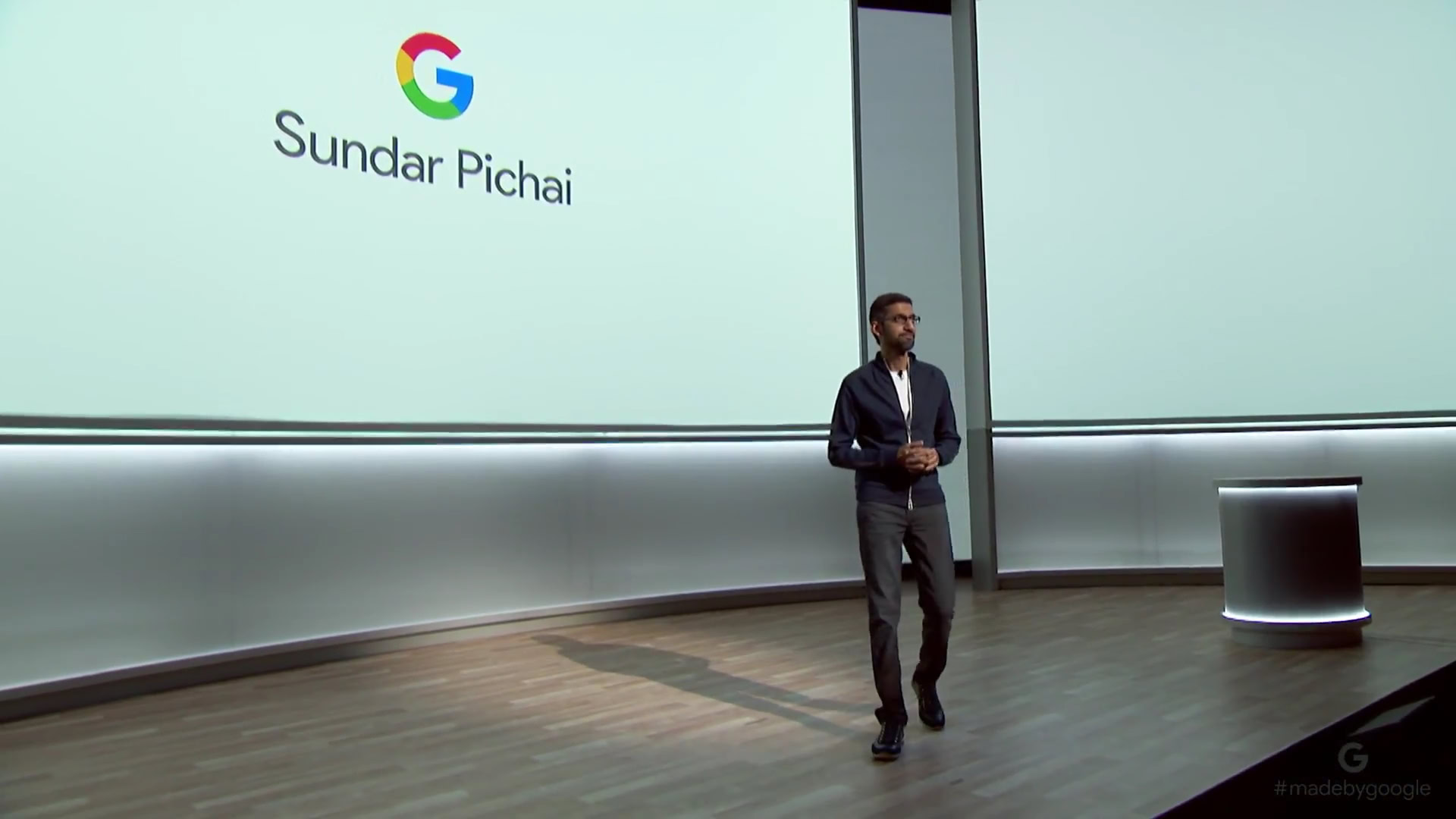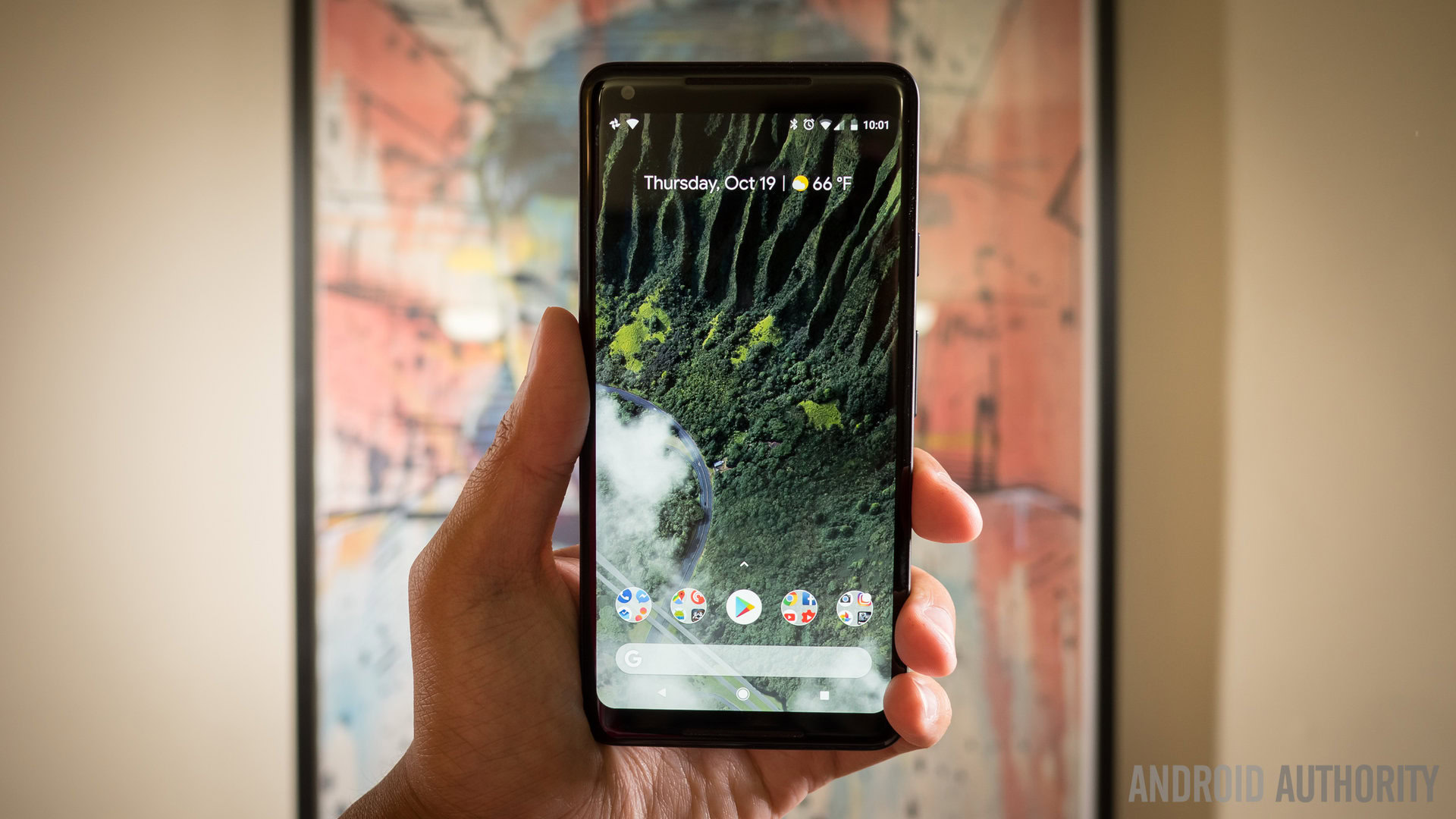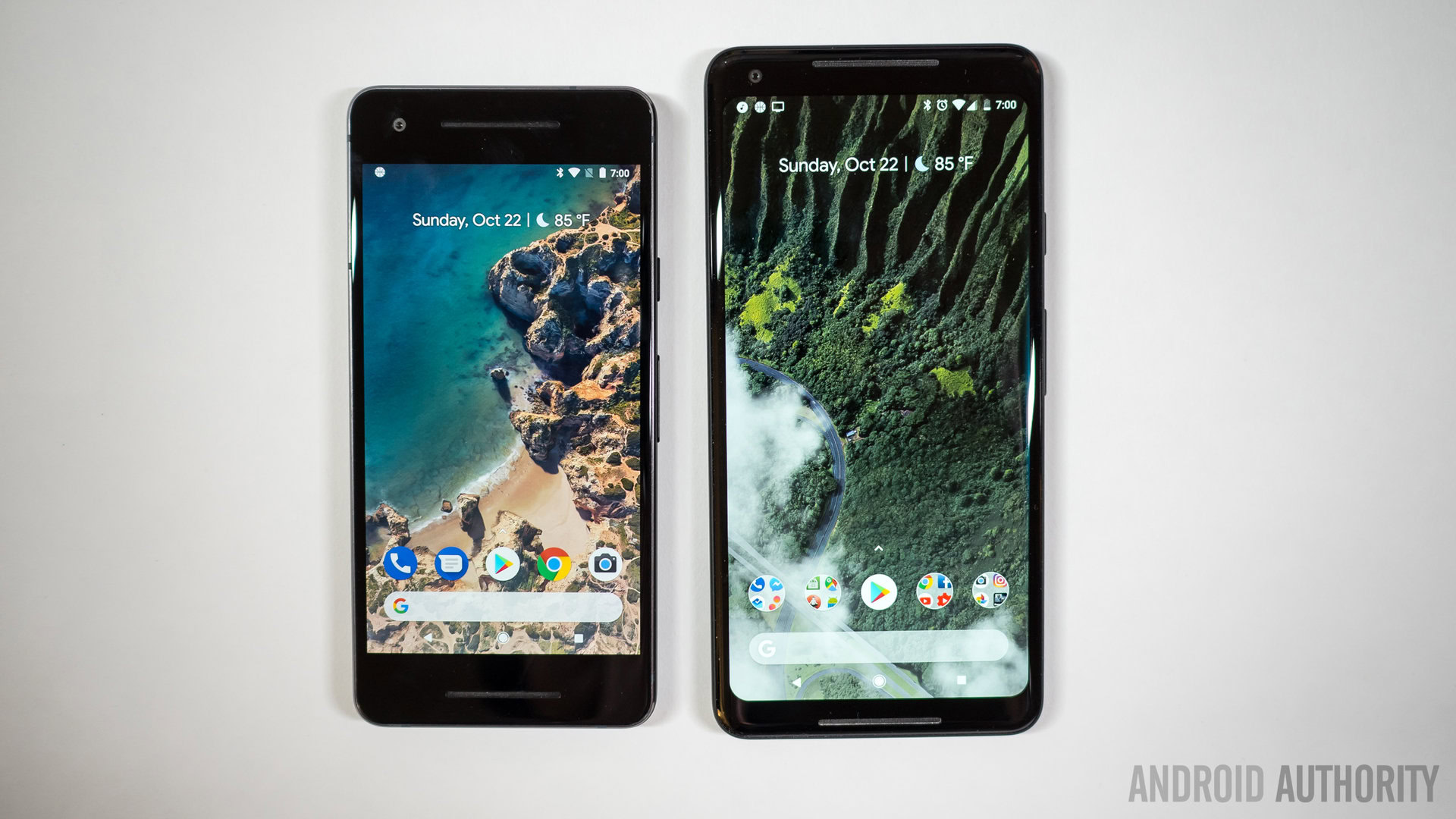Affiliate links on Android Authority may earn us a commission. Learn more.
Sundar Pichai remains coy on Google hardware, talks about the cloud and YouTube
October 27, 2017

In between introducing augmented reality to Android devices, its $1.1 billion acquisition of half of HTC’s overall research and development team, and launching a wide array of products, Google had a busy third quarter. During today’s earnings call, Google CEO Sundar Pichai addressed some of those accomplishments, as well as where the search giant goes from here.
Starting with that acquisition, folks have wondered what Google plans to do with the 2,000 recently-acquired HTC engineers, along with the non-exclusive license for HTC’s IP. Pichai was somewhat vague with his answer, saying that the deal “just made a lot of sense to do” and that Google is “very seriously committed” to hardware:
We’ve been working with HTCvery closely for the Pixel phones, so across the two companies, we saw a win-win construct, by which we could bring the team and the IP and other assets related to the Pixel business in-house. It just made a lot of sense to do it.”
Pichai also said that the acquisition will further Google’s efforts in VR and Google Home, but it makes sense for the executive to remain coy with his answers. We likely won’t see the $1.1 billion purchase come to fruition for another generation or two of hardware, so this is worth keeping an eye on for the foreseeable future.

Pichai was a bit more specific when it came to the Pixel 2 and Pixel 2 XL, which the CEO said benefitted from larger investments in marketing and wider availability:
We’re investing more in marketing. We’re launching in more countries. And we’re offering these devices in more retailers.And we’re already seeing results. Pre-orders of Pixel on day one this year were more than double what they were last year.
That is certainly good news for a company trying to increase its hardware presence in the smartphone market, but that did not happen without a bit of controversy. Whether it was Bluetooth issues with the original Pixels or the Pixel 2 XL’s display issues, Google’s phones have had one issue or another.

Drifting a bit from hardware, Pichai also commented on Google’s cloud and YouTube businesses. As it pertains to strengthening its cloud services, Google has its efforts focused on machine learning and artificial intelligence in order to marry hardware and software:
We already hear from customers that we have outstanding technology. So the reason we win deals in many cases is because we have superior technology and people also see the room ahead, thanks to a lead in machine learning. And that’s an area where I think we’ll continue to drive advantage.
Finally, from the looks of it, Google wants to position YouTube as a direct competitor to Netflix. The search giant said YouTube Red, its video subscription service, will have 40 original shows by year’s end. That is compared to the 30 original shows that Netflix plans to release in 2018.
Interestingly enough, Pichai likened YouTube TV, Google’s TV streaming service, to Google Search, in that it is easy to find what you want with both services:
I think there’s always been this promise on being able to be like Google Search where when you want something, we make it easy for you to find it. [We’re] bringing that same kind of a seamless experience to TV, when you think about something you want to watch.
Overall, Pichai and Google had plenty to say about its efforts, which all point to an even busier fourth quarter.